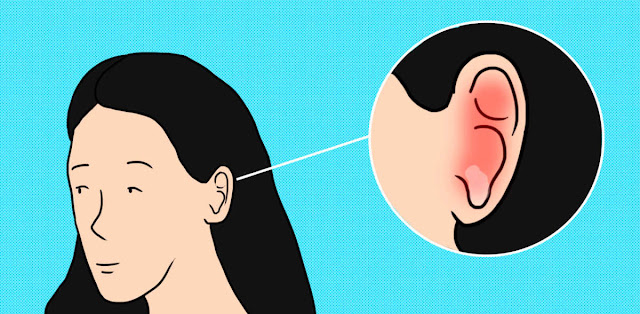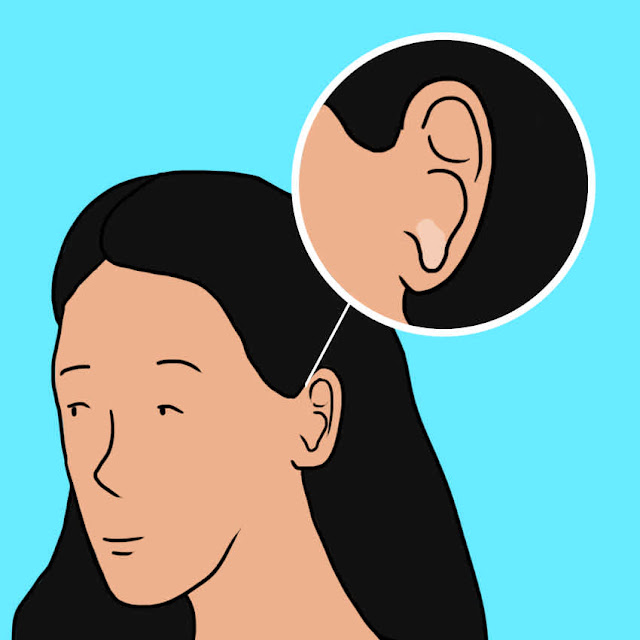I think all of us do our best to take care of our health, especially when it comes to screening for major medical issues.
But sometimes we focus so much on the big stuff that we aren't so good about taking care of the little problems that affect our day-to-day health and quality of life.
You might be really good about keeping an eye out for lung-cancer signs, but then totally neglect your body when you have a more minor bug or sore spot.
Take, for example, ear pain. We all get it from time to time, but most of us aren't good about following up on it. Unfortunately, if you aren't careful, ear pain can turn into a much bigger problem : a ruptured eardrum.
Over 200,000 people rupture an eardrum every year in the U.S., and plenty of them don't even realize it at first — which can lead to lots of complications, including deafness.
Protect your hearing and learn the symptoms and causes by scrolling through below.
Sign #1: Ringing In Your Ears
Ringing in your ears, which is also called tinnitus, is one of the most common ear symptoms people have.
There are a dozen different causes for ringing ears, but what you really need to watch out for is ringing that doesn't stop.
If you get a bit of ringing and it goes away, that's probably nothing to worry about — though if it persists and just won't subside, you may have a ruptured eardrum, which needs to get checked out.
Sign #2: Sharp Pain
A sudden sharp pain anywhere in your body is usually a sign that something isn't quite right.
If you feel a sudden stabbing pain in your ear (deep inside, not on the outer edges), then you may have something brewing under the surface.
When an eardrum pops, many people don't feel it immediately, while others may experience an instant, stabbing pain.
Sign #3: Drainage Or Discharge
Ears, on a whole, tend to be a lot drier than our other orifices.
For the most part, the only substance that comes out of ears is wax, the dense buildup of lubricating cells that protect the ear canal.
However, there's fluid deeper in the ear, which may build up during an infection and leak out if it's somehow released — as in the case of a ruptured eardrum.
Sign #4: Vertigo
Vertigo is a deeply unpleasant condition that's often a symptom of underlying illness.
Commonly called dizziness, it's not the same as feeling faint or light-headed; vertigo is when you feel like the world is tilting or spinning around you.
Your inner ears are responsible for your body's sense of balance, so if an eardrum ruptures it can mess up your equilibrium. This then results in vertigo.
Sign #5: Hearing Loss
Hearing loss is always alarming, and it can be a symptom of a ruptured eardrum.
All of us worry from time to time about developing deafness or having current hearing loss become worse.
The good news is that sudden hearing loss might alert you to an eardrum problem, but as long as it's treated quickly and taken care of, the hearing loss is usually (though not always) temporary.
Cause #1: Ear Infection
So what causes an eardrum to burst in the first place?
One of the most common causes is a simple middle-ear infection, the kind kids get all the time (grown-ups get these more rarely, though it's always just as painful).
These infections can cause fluid and pressure to build up in the ear, eventually triggering a rupture.
Fortunately, they're easily treated with a course of antibiotics, so if you suspect one, get treatment right away.
Cause #2: Picking Or Poking
There's an expression that goes "Never put anything bigger than your elbow in your ear," and in our opinion, those are words to live by.
You might think you're cleaning your ears when you stick a cotton swab in there, but you're really causing damage.
At best, you're clearing away the necessary earwax your ear uses to keep from drying out, and at worst, you can poke too far and puncture your eardrum.
Cause #3: Altitude Changes
You've probably noticed that your ears pop when you go up in an airplane or even in an elevator.
That's because the air pressure around them is changing from the speedy increase in altitude, and your ears are trying to keep up by regulating the pressure.
Most of the time they're successful, but sometimes (particularly if you have an underlying infection), your ears can't equalize the pressure and one (or both) eardrums blow out.
Have you ever had to treat a burst eardrum? Let us know in the comments, and don't forget to SHARE with friends and family!









Post a Comment